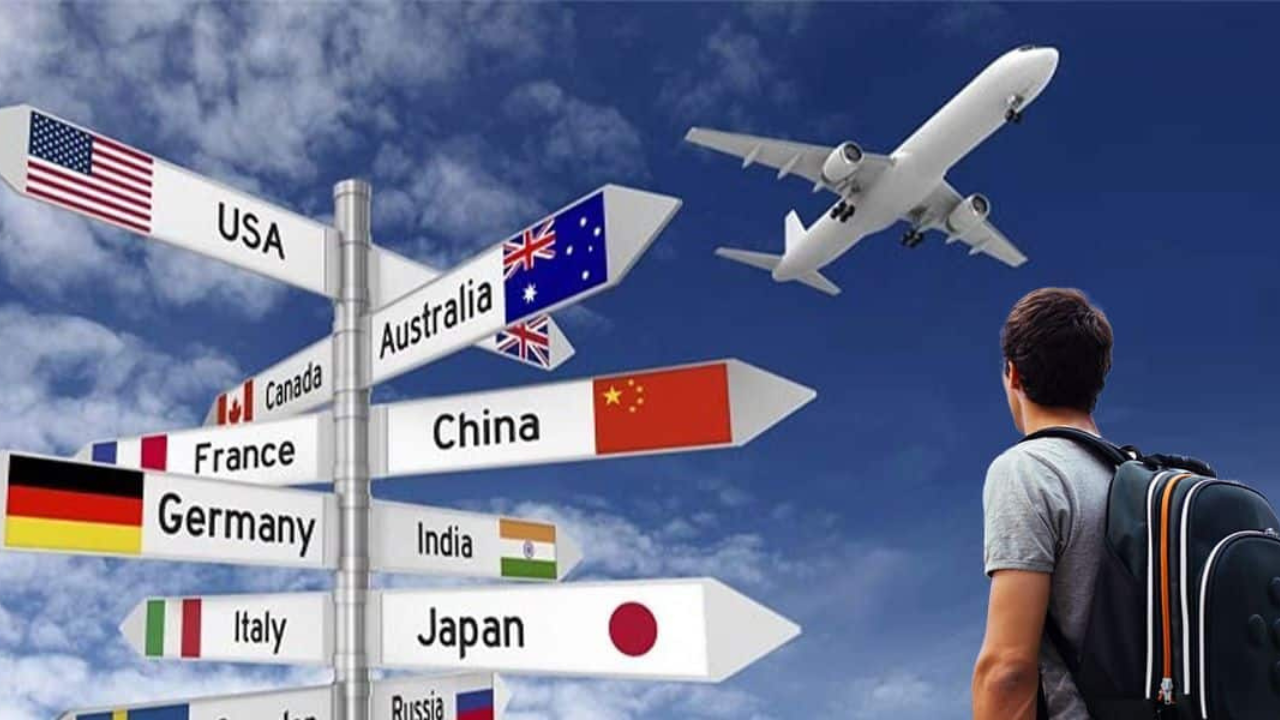Choosing the Right Destination
When it comes to leaving the UK and starting a new chapter abroad, one of the first decisions to make is selecting the right destination. There are numerous options to consider, each offering a unique set of opportunities and challenges. Many British expats prefer to move to English-speaking countries, while others may choose to explore new cultures within the EU or even developing regions. Let’s break down the most popular destinations and what factors you should keep in mind when choosing your new home.
Popular Destinations for British Expats
- English-Speaking Countries: Moving to countries where English is the primary language can ease the transition, as you won’t need to learn a new language right away. Countries such as the United States, Canada, Australia, New Zealand, and South Africa remain popular for British expats. These nations often offer a high quality of life, familiar cultural norms, and opportunities to integrate without facing a major language barrier. However, it’s important to consider other factors like visa requirements, job markets, and cost of living.
- EU Countries: For Brits who prefer to stay closer to home, EU nations provide numerous options. Countries like Spain, France, Germany, and Portugal are popular due to their proximity to the UK and relatively easy visa processes, especially for those who have lived in the UK for a long time. Many European countries offer a high standard of living and beautiful landscapes. Additionally, being part of the EU (or having specific agreements post-Brexit) can make things easier for British citizens in terms of residency and work permits.
- Developing Regions: An increasing number of British expats are choosing to live in developing countries across Asia, Africa, and South America. Places like Thailand, Vietnam, Mexico, South Africa, and Costa Rica have attracted expats for their affordable cost of living, growing job opportunities, and thriving expat communities. While these regions offer financial advantages, they often come with a completely different set of challenges, including navigating local bureaucracies, language barriers, and cultural differences.
Factors to Consider When Choosing a Destination
- Language: Language can be one of the biggest hurdles when relocating abroad. If you’re not proficient in the local language, it can make everyday tasks like shopping, dealing with utilities, or navigating government paperwork more difficult. While many European countries have a high level of English proficiency, others, especially in Asia or South America, may not. If learning a new language is something you’re not prepared for, you may want to prioritize destinations where English is widely spoken or where there is an established expat community that can help.
- Lifestyle: The lifestyle you seek plays a major role in choosing a destination. Do you prefer a relaxed, laid-back lifestyle like that found in Portugal or Thailand, or are you more inclined towards fast-paced, urban environments like New York, Toronto, or Berlin? Think about what kind of social life you want, the availability of cultural events, recreational activities, and the overall pace of life. For example, a bustling metropolis will offer a vibrant cultural scene, while a rural area may provide a slower, quieter way of life with more nature-based activities.
- Job Opportunities: Whether you’re planning to work remotely, find a local job, or start a business, understanding the job market is crucial. Some countries have booming job markets with opportunities in specific industries. For example, tech jobs are plentiful in places like Germany or Ireland, while the healthcare industry might be more promising in Canada. If you plan on relying on a local job, researching the employment laws, visa requirements, and average salaries can help you make an informed decision. In some countries, high-skilled jobs can be found relatively easily, but in others, it may be more competitive or require specialized qualifications.
- Cultural Differences: Every country has its own culture, traditions, and way of life. Some regions are more culturally similar to the UK, while others may offer a completely different way of living. Moving to a country with a culture that resonates with you can make your transition smoother. Consider factors like social norms, religion, work-life balance, and community integration. Some countries have a more laid-back approach to work and life, while others, such as Japan or South Korea, may have a more rigid structure.
Choosing the right destination is a deeply personal decision that involves considering your job prospects, lifestyle preferences, and willingness to adapt to new cultural and language challenges. The perfect destination will vary for each individual, but by doing thorough research and planning, you can find a place that aligns with your personal goals and offers a fulfilling experience abroad.
Evaluating the Cost of Living and Financial Planning
One of the most crucial aspects of relocating abroad is understanding the financial implications of your new life. While many people move overseas in search of a lower cost of living, the reality is that living expenses can vary significantly from one country to another. Before making any decisions, it’s essential to evaluate both the cost of living and your earning potential in your chosen destination. Let’s dive into the key factors you should consider when planning your finances for life abroad.
Understanding the Cost of Living vs. Earning Potential
The cost of living can greatly impact your quality of life abroad, and it’s important to balance this with the earning potential available in your new country. While some countries may offer a lower cost of living, they may also have lower wages. This can make things challenging if you plan to rely on local income.
For example, countries like Thailand or Mexico offer a significantly lower cost of living compared to the UK. In these regions, your money can stretch much further, meaning you can afford a higher standard of living or enjoy a more relaxed lifestyle. However, the wages in these countries may be lower, which means if you plan to work locally, you might earn less than you would in the UK. It’s vital to calculate how much you would need to earn to maintain the lifestyle you want.
On the other hand, in countries such as Australia or Canada, the cost of living is comparable to the UK in many areas, but wages are often higher, particularly in sectors like healthcare, engineering, or technology. If you’re considering these countries, you may find that your earning potential can comfortably support a lifestyle similar to or better than what you’re accustomed to in the UK. In any case, a clear understanding of both costs and earnings will guide you in setting realistic expectations for your financial situation.
Budgeting for Rent, Food, Healthcare, and Other Daily Expenses
Once you’ve considered the overall cost of living, it’s time to break down the specific categories that will make up your monthly expenses. Understanding how much you’ll need to allocate for each will help you create a practical budget.
- Rent:
Rent is typically the largest expense you’ll face as an expat, so it’s important to compare rental prices in your destination city or country. In large cities like New York or Paris, rent can be prohibitively expensive, while smaller towns or less urbanized areas in countries like Spain or Portugal may offer much more affordable options. Do some research to see if rent prices fit within your budget and decide whether you want to live in the city center or in a more affordable suburb or rural area. - Food and Groceries:
Food costs can vary drastically based on your destination and eating habits. Some countries, such as Italy or Mexico, offer excellent local produce at reasonable prices. In other places, like Switzerland or Norway, grocery bills can be quite high. If you plan on eating out often, dining costs should also be factored in. Restaurants in Germany or Australia can be costly, whereas street food or home cooking in countries like Vietnam or Thailand might be much more affordable. - Healthcare:
Healthcare is an area that can have a significant impact on your budget. Many countries offer public healthcare systems that are free or highly subsidized, such as in Canada or Spain. However, in other places like the United States or Mexico, you may need to purchase private health insurance. It’s important to factor health insurance costs into your budget, as having adequate coverage is vital for both your peace of mind and financial stability. - Other Daily Expenses:
Don’t forget about utilities, transportation, phone bills, and other daily expenses. Utilities like electricity, water, and the internet can be expensive in some countries, while in others they may be incredibly affordable. Public transportation is often cheaper in countries like Germany or Japan, while in countries like the United States, you may need a car. Think about how you plan to get around and whether you’ll need to set aside funds for transportation or whether living without a car is feasible.
Managing Currency Exchange, Savings, and Financial Stability Abroad
When living abroad, currency exchange rates and how they fluctuate can have a significant effect on your finances. It’s essential to be aware of the exchange rates between your home currency (GBP) and the currency of your destination country. This will impact everything from how much money you can transfer back home to the actual value of your earnings and savings in a different currency.
- Currency Exchange:
Exchange rates can fluctuate, so it’s wise to monitor trends and exchange your money at favorable rates when possible. Setting up a multi-currency account or using a reliable money transfer service can help you avoid high fees. In some cases, it might even make sense to keep some savings in your home currency if it provides better value in the long run. - Savings:
While living abroad, you might need to adjust how you save and invest. If you’re earning in a foreign currency, consider how it impacts your long-term savings goals. It’s also important to have an emergency fund in place to cover unexpected expenses. Countries with a higher cost of living, such as the US or Australia, may require larger savings buffers to cover potential job loss or other emergencies. - Financial Stability:
For many expats, staying financially stable abroad requires careful planning. Consider setting up a local bank account in your new country for easier access to cash and paying bills. Additionally, many expats keep a UK account for managing bills back home or saving for the future. Having a mix of both accounts ensures you’re prepared for financial challenges no matter where you are.
Understanding the financial landscape of your destination is key to a successful life abroad. By researching the cost of living, creating a budget, and planning for currency fluctuations and long-term savings, you can ensure that your financial well-being is secure, allowing you to focus on adapting to your new home and enjoying your expat journey.
Handling Taxes and Legal Obligations
One of the most important yet often overlooked aspects of moving abroad is ensuring that your tax situation is in order. Tax laws can be complex, and failing to address your obligations both in the UK and in your new country could lead to unnecessary financial stress. To ensure a smooth transition, it’s essential to take the right steps before leaving and to familiarize yourself with the tax rules in your destination country. Let’s explore the key steps involved in handling taxes and legal obligations when moving abroad.
Informing HMRC and Addressing Tax Liabilities Before Leaving
Before you pack your bags and head abroad, the first thing you need to do is inform HM Revenue & Customs (HMRC) of your intention to leave the UK. This is especially important if you plan to leave for an extended period or make a permanent move. Not informing HMRC could result in unnecessary tax liabilities, as they may still consider you a UK tax resident, which can lead to you being taxed on your worldwide income.
To notify HMRC, you need to complete a P85 form, which informs them that you’re leaving the UK and outlines your plans for residing abroad. This form helps HMRC determine whether you’ll continue to be a UK tax resident or if you’re eligible for tax relief as a non-resident. You can typically fill out the form online, and it’s advised to do so before leaving the UK to avoid complications.
Understanding Double Taxation Agreements and Local Tax Laws
When living in another country, it’s important to understand how your income will be taxed both in your home country (the UK) and in your new country of residence. This is where double taxation agreements (DTAs) come into play.
Double taxation agreements are treaties between countries that are designed to prevent the same income from being taxed twice. For example, the UK has DTAs with many countries, including the United States, Canada, and Australia, which helps determine where you will pay tax on your income. These agreements typically ensure that if you’re paying tax in your country of residence, you won’t be taxed again in the UK.
However, DTAs can be complex, and each country has its own set of rules for determining tax residency, what constitutes taxable income, and how income is taxed. For instance, some countries like France or Germany tax residents on their worldwide income, while others may only tax income earned within the country.
It’s vital to research how the DTA works between the UK and your destination country, as this will determine your overall tax burden. If you’re uncertain about any aspect, consulting with a tax professional or accountant can help clarify your situation and ensure you remain compliant with both countries’ tax laws.
Seeking Professional Advice from a Tax Expert or Accountant
Given the complexity of tax laws and the potential risks of making mistakes, it’s highly advisable to seek professional advice from a tax expert or accountant before leaving the UK. This is especially important if you have complex tax affairs, such as owning property in the UK or receiving income from multiple sources.
A tax advisor can help you:
- Understand Your Tax Residency Status:
Tax residency rules can be tricky, especially when dealing with international relocation. A tax expert can clarify your residency status in both the UK and your destination country and ensure you don’t inadvertently fall into double taxation. - Navigate Double Taxation Agreements:
Understanding the intricacies of DTAs can be challenging, so a tax expert can ensure you take full advantage of any tax relief you’re entitled to. They can also help you determine whether you need to file taxes in both countries and how to claim any tax credits or exemptions. - Plan for Your Future Taxes:
A tax professional can assist with long-term tax planning. If you’re planning on staying abroad for a long time or permanently, they can advise you on how to structure your finances in the most tax-efficient way. They can also guide you on how to handle pensions, investments, or other income-generating assets in line with both UK and foreign tax rules. - Ensure Compliance with Local Tax Laws:
Each country has its own tax system, and it’s essential to ensure you’re in full compliance with local laws. A local tax expert can help you navigate your new country’s tax regulations, so you avoid penalties and ensure that you’re paying the right amount of tax.
Sorting out your taxes and legal obligations is a crucial part of making a smooth transition abroad. By informing HMRC about your move, understanding double taxation agreements, and seeking expert advice, you’ll ensure that your financial and legal affairs are in order before you leave the UK. This will not only save you time and stress in the long run but also ensure you’re fully compliant with the tax laws of both the UK and your new home country.
Securing Healthcare and Insurance
Healthcare is one of the most important considerations when moving abroad. Each country has its own approach to healthcare, with varying systems, costs, and quality. As a British citizen, once you leave the UK, you’re no longer covered by the NHS, so you’ll need to secure alternative health insurance. Let’s break down the key considerations for ensuring your health is well-protected when living abroad.
Understanding How Healthcare Systems Vary by Country
Healthcare systems differ significantly from country to country. In some nations, you’ll find comprehensive public healthcare systems where citizens and residents have access to free or low-cost medical care. Countries like France, Germany, and Canada offer robust public healthcare options funded through taxes. However, even in countries with public healthcare, there can be variations in the quality of care, availability of services, and wait times.
On the other hand, many countries, particularly in the United States and some parts of Asia and Africa, rely on private healthcare systems. In these countries, healthcare can be expensive, and access to treatment can be limited without proper insurance coverage. For instance, private hospitals and clinics are common in countries like the UAE and Singapore, where they often provide high-quality care but at a significant cost.
Before choosing a destination, it’s essential to research the healthcare system in your new country. Understand what is covered, how long it takes to receive treatment, and whether the local healthcare system is public or private. In some cases, you may need to pay for services upfront and claim reimbursement from your insurance provider, while others may have direct billing with insurance coverage.
Private vs. Public Healthcare: Costs, Coverage, and Accessibility
Once you have an understanding of the healthcare system in your new country, it’s time to consider whether you’ll be relying on public or private healthcare. Many expats prefer private healthcare for its quicker access to treatments and a broader range of services, although it’s typically more expensive.
- Public Healthcare: Some countries offer public healthcare systems where, as a resident, you’ll pay into the system through taxes or other fees. While these systems tend to be more affordable, they may have longer waiting times for certain treatments. Countries with strong public healthcare systems, such as Australia and New Zealand, often have high standards of care, but you may still need private insurance to cover services that are not included in the public system.
- Private Healthcare: In countries without comprehensive public systems, or where the public system is limited, private healthcare becomes the primary option. Private hospitals and clinics tend to provide faster service and access to specialists, but at a higher cost. If you’re living in a place like the US or Mexico, private healthcare is often the only viable option, and it’s crucial to have a robust health insurance policy.
In countries with mixed healthcare systems, you might find that private insurance supplements the public system. For example, in Germany, the public system is excellent, but many expats opt for private health insurance to ensure access to better facilities or faster care.
Choosing the Right International Health Insurance Plan
Given the variability of healthcare systems around the world, expats often rely on international health insurance to cover their medical needs. When choosing an insurance plan, it’s crucial to ensure that it provides comprehensive coverage, including:
- Emergency Care and Evacuation: Look for insurance that covers emergency medical evacuation in case you need to be transferred to another country for treatment.
- Pre-existing Conditions: Some health insurance policies don’t cover pre-existing conditions, so it’s important to check the fine print to ensure you’re adequately covered.
- Routine and Preventative Care: Depending on the country, preventive care may be covered under public health systems, but private insurance can help ensure that you have access to ongoing medical services, such as check-ups and vaccinations.
- Mental Health and Specialist Care: Mental health services are often overlooked in basic insurance plans. Make sure your plan covers mental health care, as adjusting to life abroad can sometimes be emotionally challenging.
International health insurance providers like Cigna, Allianz, or Bupa Global offer tailored plans for expatriates. It’s advisable to shop around and compare the benefits and costs of different policies to find the one that best suits your healthcare needs.
Building a Social Network and Community
Relocating abroad can be an exciting adventure, but it also comes with its share of emotional challenges. One of the most difficult aspects of expat life is the feeling of loneliness, as you leave behind family, friends, and familiar surroundings. But it’s important to remember that building a new social network is possible, and it can greatly enhance your experience living abroad.
The Emotional Challenges of Relocating and How to Overcome Loneliness
Moving to a new country can trigger a range of emotions. You might experience excitement, curiosity, and adventure, but it’s also common to feel homesick or isolated, especially during the first few months. Loneliness is a common challenge for expats, particularly when they don’t yet have a strong social network in their new home.
To overcome these feelings of isolation, it’s important to:
- Give Yourself Time: Understand that building connections takes time. It’s normal to feel lonely at first, but this feeling will diminish as you settle in and begin forming relationships.
- Stay Connected with Loved Ones: Regularly staying in touch with friends and family back home can help ease homesickness. Technology, such as video calls and messaging apps, makes it easier to maintain connections despite the distance.
- Learn the Local Language: While it might not be a necessity in some countries, learning the local language can significantly improve your ability to connect with locals. It shows effort and respect for the culture and can lead to deeper friendships.
Finding and Connecting with Expat Groups and Local Communities
One of the easiest ways to combat loneliness is by connecting with fellow expats. Many cities around the world have large and supportive expat communities. Online platforms like Facebook, Meetup, and Expat.com are excellent places to find and join local expat groups. These groups often meet regularly for social events, support sessions, or cultural activities.
Engaging with other expats can also provide valuable information about navigating life in your new country, such as tips on housing, employment, and healthcare. It’s reassuring to share experiences with people who understand the challenges of settling into a new culture.
Integrating into a New Culture and Building Local Friendships
While connecting with other expats is helpful, it’s equally important to integrate into the local community. Developing friendships with locals can enhance your experience and help you better understand the culture.
- Get Involved in Local Activities: Whether it’s joining a sports club, attending cultural events, or volunteering, participating in community activities is a great way to meet new people and form genuine connections.
- Be Open and Curious: Be open to learning about the local culture, customs, and lifestyle. Embrace new experiences and show a genuine interest in the people and traditions of your new home.
- Join Professional Networks: If you’re working abroad, joining professional organizations or attending networking events can help you meet people within your industry and create valuable business relationships.
While the initial emotional challenges of relocation can be tough, building a supportive social network and integrating into your new environment will make your life abroad much more enjoyable. By connecting with other expats, engaging in local communities, and embracing the cultural differences around you, you can create lasting friendships and make your transition abroad a positive and fulfilling experience.
Final Preparations and Long-Term Success
The final stages of preparing to leave the UK for life abroad can feel overwhelming, but with the right steps in place, you can ensure a smooth transition. Beyond the excitement of your upcoming adventure, there are critical pre-departure tasks that require your attention, such as securing visas, finding housing, and setting up banking systems. Once you arrive in your new country, adapting to cultural differences and managing your long-term happiness will be key to a fulfilling expat experience.
Essential Pre-Departure Steps (Visa, Housing, Banking, etc.)
Before you leave the UK, there are several important logistical steps to take care of. Properly preparing for your move ensures you hit the ground running when you arrive in your new home.
- Visa and Residency Permits: The first and most crucial task is securing the appropriate visa for your destination country. Each country has different visa requirements, so it’s important to understand whether you need a work visa, student visa, or residency permit, and start the application process well in advance. Many countries require proof of income, health insurance, and sometimes a criminal background check as part of the application. Ensure you are clear on these requirements and give yourself enough time to complete the process.
- Housing: Finding a place to live can be a bit daunting, but there are numerous resources available for expats to find accommodation. Whether you’re looking for a long-term rental, shared housing, or even a house purchase, it’s essential to start your search before you depart. Websites such as Rightmove (for international rentals), Zillow, and Expats in [Country] are great resources. Also, reach out to local agents or ask fellow expats about housing recommendations in the area.
- Banking and Finances: Opening a bank account in your new country will make life much easier when it comes to managing your finances, paying bills, and receiving wages. Many countries allow you to open a bank account remotely before you arrive, so research your options. Also, ensure your UK bank accounts are properly set up to handle international transfers. You may need to consider how to manage your funds with a mix of local currency and UK-based accounts, particularly if your new country has a different currency or banking system.
- Healthcare Registration: If your destination country has a public healthcare system, make sure you’re registered with the system early on. This can include obtaining a health insurance card or registering for the national health service. If you’re relying on private insurance, ensure your policy covers you from the moment you arrive.
Adapting to Cultural Differences and Local Customs
One of the most exciting parts of living abroad is immersing yourself in a new culture. However, adapting to local customs, traditions, and everyday ways of life can take time and effort. Understanding these cultural differences not only helps avoid misunderstandings but also enriches your overall experience.
- Learn the Local Language: While many countries have English-speaking communities or people who speak English, mastering the local language will deepen your connection with the culture and help you navigate daily life. Basic communication skills, such as asking for directions or ordering food, will empower you to feel more confident. You can also take language courses or use apps like Duolingo or Babbel to practice.
- Understand Social Norms and Etiquette: Social customs can vary widely between countries. In some places, tipping is expected, while in others it might be considered unnecessary or offensive. Knowing the expectations around dining, greetings, and business etiquette will make interactions smoother. For example, in countries like Japan, bowing is a sign of respect, while in France, saying “bonjour” before asking for something is a key social norm. Researching the customs of your new home will help you integrate more easily.
- Embrace New Traditions and Holidays: Every culture has its unique traditions, festivals, and holidays. Participate in these celebrations to understand the local way of life better. Whether it’s joining in a Carnival in Brazil, celebrating Lunar New Year in China, or attending a Thanksgiving dinner in the US, immersing yourself in these events can make you feel more at home. It’s also an opportunity to bond with locals and other expats.
Ensuring a Smooth Transition and Long-Term Happiness Abroad
Transitioning smoothly into life abroad requires more than just managing the practicalities—it’s about building a long-term plan for personal happiness and success.
- Create a Balanced Routine: Establishing a balanced daily routine is essential for staying grounded. Although exploring your new surroundings is exciting, it’s important to integrate familiar activities into your day. Whether it’s exercising, cooking meals from home, or continuing hobbies, maintaining a routine helps keep you feeling connected to yourself and reduces the stress of change.
- Stay Open to New Experiences: Moving abroad offers endless opportunities to expand your horizons. While it’s tempting to cling to old habits or familiar comforts, being open to new experiences and challenges will help you grow. Try new foods, explore unfamiliar areas, and attend local events. Embrace the journey with curiosity and an open mind.
- Mental and Emotional Wellbeing: Take care of your mental health by acknowledging any emotional challenges and seeking support when needed. Moving abroad can cause stress, homesickness, and moments of uncertainty. Reach out to other expats, make time for self-care, and seek professional help if necessary. In many cities, there are expat therapists or counseling services tailored to the needs of those adjusting to life abroad.
- Plan for the Future: Whether you plan to stay abroad long-term or eventually return to the UK, it’s important to think about your long-term goals. Will you want to become a permanent resident in your new country? Are you interested in applying for citizenship later on? Research residency or citizenship programs and the necessary steps to make sure you have a clear path forward.
Ensuring a smooth transition to life abroad takes careful planning and a proactive approach. By securing necessary paperwork, understanding cultural differences, and creating a balanced routine, you’ll be well on your way to long-term success and happiness in your new home. Moving abroad is a transformative experience, and with the right preparation, you can embrace your new life with confidence and joy.














